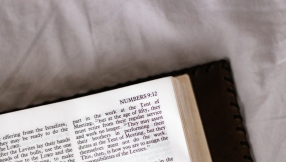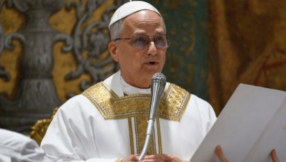Controversy Continues Over Legalisation of Gay Marriage in South Africa
South Africa's National Assembly voted 230 to 41 in favour of the Civil Union Bill which gives homosexual couples the right to register their unions - giving their unions the same recognition as those of heterosexual couples.
The decision has sparked fierce opposition from religious groups among others who prior to the vote demonstrated and launched petitions in a bid to prevent the bill from going through.
The African Christian Democratic Party was one of the most outspoken opponents of the bill. Its leader, the Rev Kenneth Meshoe, said, "Parliament has gone too far and is testing God's patience."
Jo-Ann Downs, the party's deputy president, said: "South Africa is out of step with the world!" She further criticised the approval to accord the status of "marriage" to a union between two people of the same sex in a country where religious marriages are still not recognised in law, reports IRIN News.
Downs said it was "absurd" that a country which did not accord legal recognition to religious marriages, such as between two Muslims, should first provide rights to a minority group.
Tuesday's vote followed public hearings in nine provinces across South Africa. Phatekile Holomisa, a traditional leader and member of parliament for the ruling African National Congress (ANC), said: "We are definitely not ready for this - people reacted with anger and indignation at the public hearings on the bill."
Describing the proposed law as "unacceptable", Holomisa added that the conservative section of parliament had only "reluctantly" supported the bill.
Members of the public have also expressed their anger in phone-in chat shows on television and radio which have held heated debates on the bill. Callers have described it as "undemocratic", "unchristian" and a "moral slippery slope".
Patrick Chauke, chair of the parliamentary home affairs committee and dissenting voice in the ANC - which did not allow its parliamentarians a free vote on the new law - said in local daily newspaper Business Day, "You won't find things like this anywhere else in Africa".
Public scorn over the bill even stretches to academic circles. Sehlare Makgetlaneng, head of the southern Africa desk at the Africa Institute of South Africa, a Pretoria-based think-tank, claimed it did not reflect the view of Africans anywhere in the continent. "The bill did not have the approval of the majority - the minority in the society had actually set the wheels in motion for the bill in the 1990s, when the constitution was being written."













